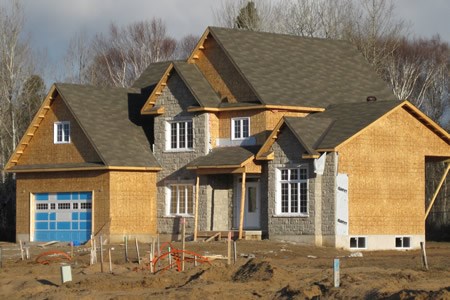Developers and municipalities have been given some breathing room before a hike in education development charges comes into effect.
The Simcoe County District School Board and Simcoe Muskoka Catholic District School Board could have approved the steep increase at a recent meeting. Instead, they've decided to wait until the fall.
A consultant initially suggested the charges be applied equally to every municipality in the county, regardless of their differences in population growth. That didn’t go over well with developers and politicians from the northern part of the county, where growth is happening at a much slower rate than it is in the south.
So, the consultants were asked to explain what the figures would be if the charges were determined on an area-specific basis.
The charges are currently implemented jurisdiction wide, at $1,759. If the board keeps that model, the charges will increase to $5,064.
The consultants, Watson and Associates, provided potential area-specific charges, breaking it up into the north part of the county and central/south. An area-specific approach could see $2,206 in charges applied in the north and $6,440 in the central/south.
Jodi Lloyd still wants more information before making a decision.
The public schools trustee for Orillia and Ramara noted the board does much of its planning with the entire county in mind, and taking an area-specific approach to development charges counters that.
“It’s hard to rationalize taking two different approaches,” she said. “We’re a jurisdiction-wide board. Our responsibility is all of Simcoe County.”
She acknowledged the optics of such a dramatic increase aren’t necessarily positive. The fees haven’t changed since 2013, when the existing bylaw went into effect. That bylaw expires in November.
The boards have the ability to revisit the bylaw annually, rather than wait until its final year, and make changes.
“In retrospect, maybe that would’ve been a prudent thing for us to do, and increase it then,” she said. “Smaller increases are a little easier to digest for people.”
However, development charges “have been low” relative to growth over the past five years, she added.
“No one anticipated land costs to increase at the rate that they have,” Lloyd said.
While the Ministry of Education funds the construction of new schools, acquiring the land is the boards’ responsibility, and development charges are the only means of funding those purchases.
Lloyd noted the consultants' numbers are "very rough and preliminary" and that they are working on a more detailed analysis.
Before she decides how to vote on the new bylaw, she wants to know how the board’s future needs would be served by both the jurisdiction-wide and area-specific charges.
“I would like detailed information — what our costs will be, what school land will cost,” she said. “We all have associated costs tied to growth. We have to be sure, as a school board, that we can cover the costs of accommodating growth.”
Lloyd expects the boards will make a decision in September.



